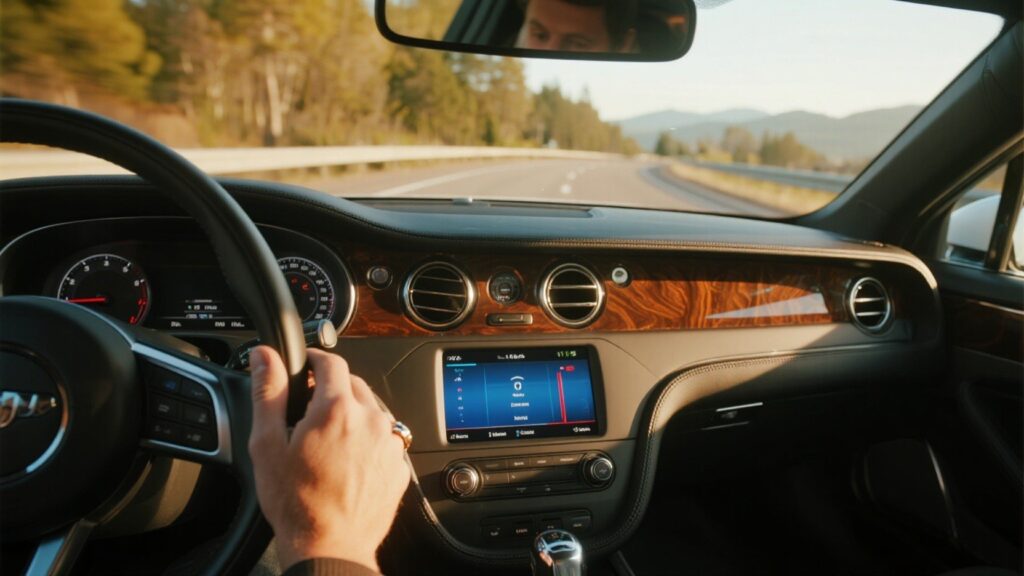Few things are as vital to your safety on the road as your brakes. They give you control, confidence, and peace of mind each time you step into your car. Yet, many drivers unknowingly shorten the life of their brakes through habits that seem harmless in the moment. Learning what these mistakes are and how to avoid them can save you money on repairs and, more importantly, keep you safe.
Riding the brakes on hills
One of the most common mistakes drivers make is keeping constant pressure on the brake pedal while driving downhill. It might feel safer, but what it actually does is create continuous friction and heat, which wears down the brake pads and can even warp the rotors over time. A better approach is to downshift into a lower gear so that the engine helps control speed. Then, use the brakes in short, firm intervals rather than holding them steadily. This method not only preserves the brakes but also provides better control.
Braking too hard at the last moment
Waiting until the last second to press the brakes puts unnecessary stress on the entire system. Heavy, abrupt stops force the pads to clamp down harder, creating extra heat and wear. Over time, this habit can lead to glazing, where the brake pad surface becomes hardened and less effective. Instead, it pays to anticipate traffic flow. Ease off the accelerator earlier and apply gradual braking pressure. This smoother style extends brake life and gives passengers a more comfortable ride.
Ignoring unusual noises
Drivers often overlook squealing, grinding, or clicking sounds from their brakes. These noises are rarely minor; they are usually an early warning that pads are worn, hardware is loose, or rotors are damaged. Continuing to drive without inspection can lead to more costly repairs and unsafe conditions. If you hear unfamiliar sounds, it is best to schedule a quick check. Addressing small issues early often prevents larger, more expensive ones.
Carrying too much weight
Overloading your vehicle places a heavy demand on the braking system. Extra weight increases the momentum that the brakes need to counter, which results in longer stopping distances and more heat build-up. For families and commuters, it helps to clear out trunks filled with items that are not in daily use. When planning road trips, balance the load and check that it stays within the manufacturer’s recommended limits. Lightening the strain makes your brakes last longer and improves fuel efficiency at the same time.
Resting your foot on the brake pedal
Some drivers keep a light touch on the brake pedal, even when it is not needed. This small pressure, often unconscious, can engage the pads against the rotors and create steady wear. It also reduces fuel efficiency because the car is constantly being slowed. A simple fix is to train yourself to keep your foot fully on the floor or on the accelerator unless you truly need to brake.
Driving at high speeds
Speeding does more than raise safety risks. It also makes braking harder on your car. The faster you are going, the more energy your brakes must absorb to bring the vehicle to a stop. That extra force generates more heat and causes faster deterioration of pads and rotors. Keeping to moderate speeds not only keeps you within the law but also reduces strain on your brakes, tires, and suspension.
Delaying brake fluid changes
Brake fluid plays a quiet but crucial role in how effectively your brakes perform. Over time, it absorbs moisture and becomes less efficient, which can cause a spongy feel when you press the pedal. Many drivers ignore fluid maintenance until problems show up, but by then, internal parts of the system may already be damaged. Checking the manufacturer’s schedule and flushing the fluid as recommended keeps the system responsive and reliable.
Skipping regular inspections
Brakes wear gradually, and the decline is easy to miss until it becomes serious. Relying only on visible signs or waiting until the brakes feel weak can be a costly mistake. A professional inspection every year or during routine servicing helps identify pad thickness, rotor condition, and fluid health. It ensures your system is ready before problems put you at risk.
Braking habits that protect your system
Protecting your brakes is less about technical knowledge and more about mindful driving. Leave space between you and the car ahead, reduce your reliance on hard stops, and stay alert to the sounds and feel of your vehicle. Keeping loads light and maintaining fluid checks are small actions that pay back in reduced repair bills and safer journeys.
Brakes are not something to take for granted. They are the difference between a close call and a collision. By avoiding the mistakes many drivers make and adopting a few simple habits, you can extend the life of your brakes, save money, and enjoy smoother, safer driving every day.


